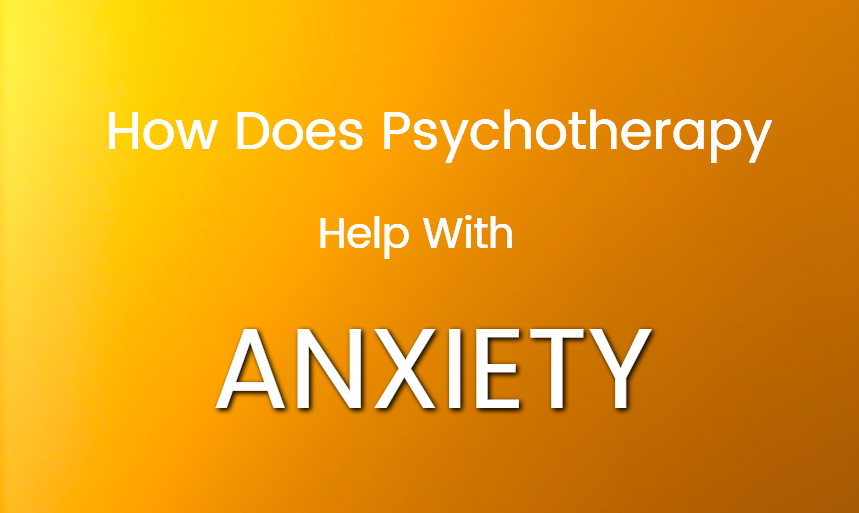
Are you troubled by anxiety? Not sure how to manage it effectively? You don’t have to live with anxiety and fear. Treatment can help and for many anxiety problems, psychotherapy may be the answer.
What is Anxiety?
Anxiety can be defined as nervousness, apprehension, and self-doubt that may or may not be associated with real-life stressors. Everyone experiences some level of anxiety periodically, but when feelings of dread and worry are unfocused, overwhelming, recurring or not directly linked to stressful events, anxiety may leave a person severely impaired. When anxiety interferes with daily function, psychotherapy can often be helpful.
Signs and Symptoms
A person with anxiety may experience feelings of panic, fear and uneasiness, with uncomfortable physical sensations such as trembling, sweating, a racing heartbeat, nausea, and shortness of breath. Anxiety symptoms include obtrusive, obsessive, worried thoughts, confusion and difficulty concentrating, pacing or restlessness, irritability, frustration and despair.
Anxiety can also lead to headaches, insomnia, digestive problems and is at the root of many mental health conditions, including panic attacks and phobias. It is also often directly correlated with other conditions, such as obsessions and compulsions, post-traumatic stress, and depression. Because anxiety can interfere with relationships, sleeping patterns, eating habits, work, school and routine activities, if left untreated, anxiety disorders can have severe consequences.
How Can Psychotherapy Help Someone Suffering from Anxiety?
A qualified psychotherapist is highly trained to diagnose and treat people with anxiety disorders. Rather than treating symptoms alone, as medications do, psychotherapy aims to help you identify and address the source of the anxiety. Using techniques based on the best available research, it can help you understand the underlying causes of your worries and fears; learn how to relax; look at situations in new less frightening ways; and develop better coping and problem-solving skills. Psychotherapy can show you the tools to overcome anxiety and teach you how to use them.
How Psychotherapy Works in Treating Anxiety
Therapy sessions are tailored to your specific symptoms and concerns. The length of therapy will also depend on the type and severity of your anxiety disorder. The psychotherapist and client collaborate on a treatment plan and explore and devise experiments, strategies and lifestyle adjustments to help relieve anxiety.
With a pro-active psychotherapy approach, the patient is actively involved in his or her own recovery, has a sense of control, and learns skills that not only help them tackle anxiety but can also be useful throughout life. An integrative psychotherapist will often combine awareness growth with behavioral techniques, to help the individual gradually confront and tolerate fearful situations, in a controlled and safe environment.
The most commonly known anxiety therapy is cognitive behavioral therapy (CBT). CBT therapy is relatively short-term treatment, which helps identify problematic thinking and behavior that fuels anxiety and utilizes a combination of exercises and experimentation to address anxiety problems. For a focused piece of work, some people might find 6 sessions could be enough. Other people may wish to work over a longer time and may find 12 or 16 sessions work better for them.
Sometimes CBT therapy doesn’t enable the client to address certain anxiety issues, in a lasting way. This can occur because CBT doesn’t comprehensively explore early life experiences, which often feed underlying roots to anxiety symptoms. This means similar anxiety issues can re-surface some time after a successful course of CBT Therapy has been completed.
A pro-active integrative psychotherapy approach to anxiety can address the gaps when CBT isn’t enough. A good integrative psychotherapist will help you understand the historical roots that fuel some of your anxiety experiences and by addressing these, alongside the current life anxiety triggers, powerful and lasting change may be achieved.
Conclusion
For people who suffer from anxiety disorders, working with a qualified and experienced psychotherapist can teach you how to control your anxiety levels, stop worrisome thoughts, and conquer your fears. It can give you a new way of understanding and thinking about your problem and provide you with the skills to deal with the issues that you are struggling with right now.
Set the stage for success by making a conscious decision to promote relaxation, vitality, and a positive mental outlook in your everyday life. With proper and effective treatment, people suffering from anxiety disorders can gain control of their lives.
Article provided by Mike James, an independent content writer with a keen interest in self-development and brain-training techniques. For the information in this post, London-based specialist Klear Minds were consulted.

I like that the patient is involved in their own recovery. I think it will help build a lasting solution. I think it is important to teach people how they can help themselves. I have a nephew with bad anxiety. I will have to share this with him.